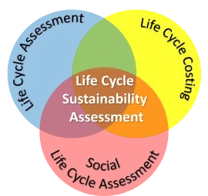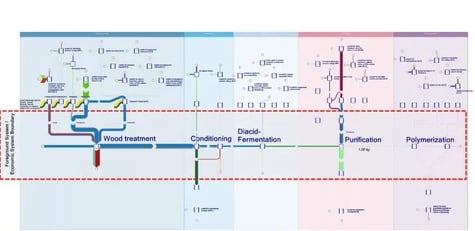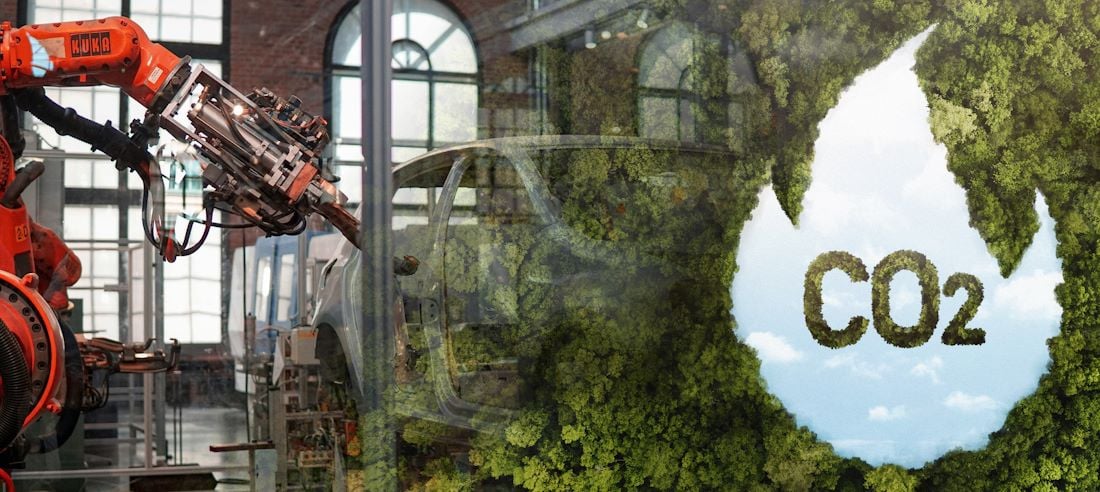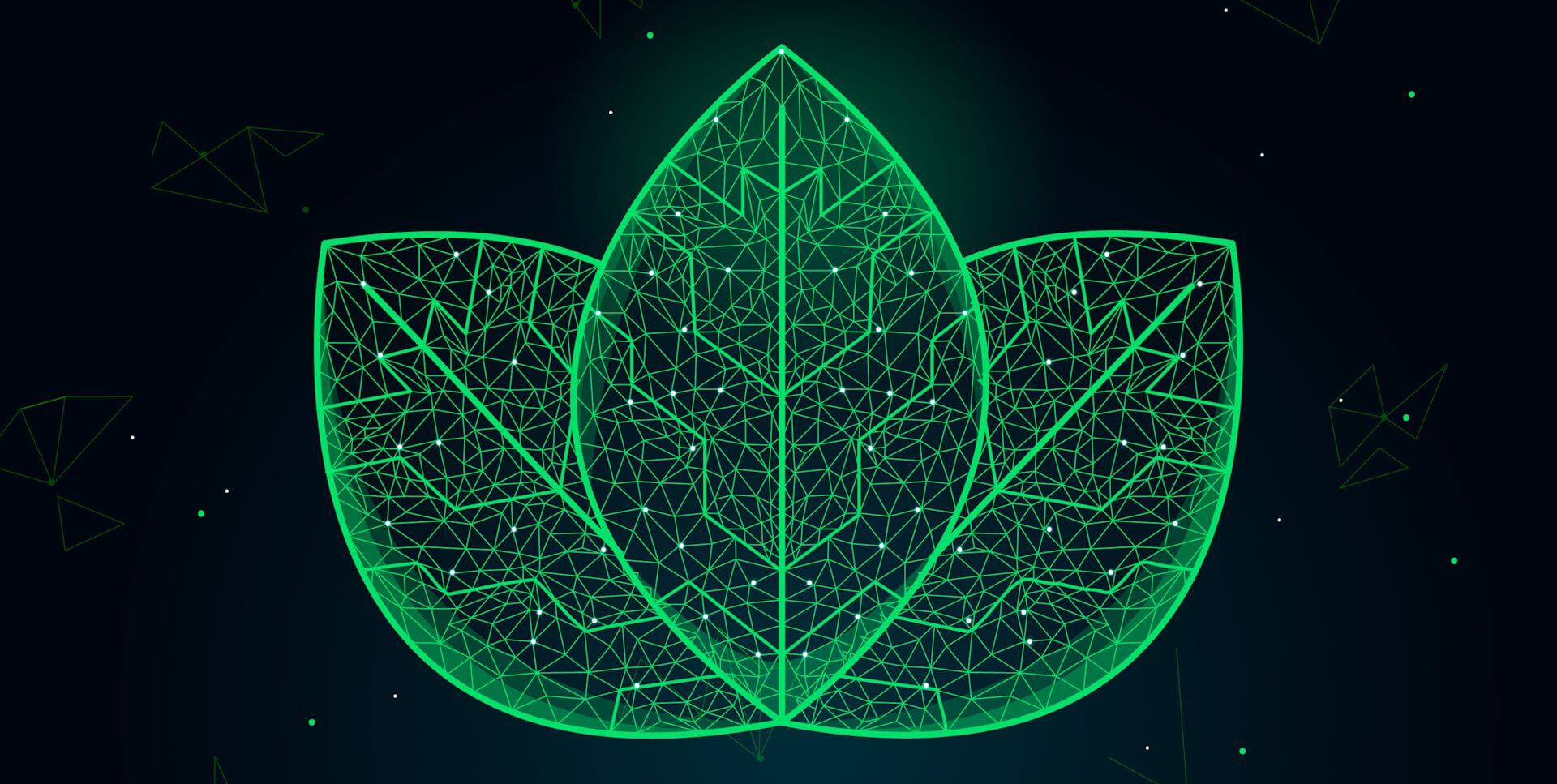So genannte Biokraftstoffe der ersten Generation basieren auf Materialien wie Mais, Zuckerrohr, Weizen oder Raps. Sie basieren somit auf den gleichen Ressourcen, die auch für die Lebensmittelproduktion wichtig sind. Wenn solche Biokraftstoffe in großem Maßstab hergestellt werden, könnten die Preise für diese Ressourcen steigen. Stattdessen versuchen Ansätze der zweiten Generation erneuerbare Produktionswege zu entwickeln, die nicht auf Nahrungsressourcen angewiesen sind, sondern andere Materialen wie Ernterückstände, Holz oder Abfallbestandteile als Ausgangsstoffe nutzen. Im Projekt BioREFINE-2G untersuchten die Projektpartner die technische Realisierbarkeit der Verwendung von Abfallströmen aus der Borregaard-Holzraffinerie in Norwegen als Grundlage für Biokunststoffe. Im Rahmen dieses Projekts hat unser Team für Nachhaltigkeitsberatung eine Ökobilanz inklusiver sozialer und ökonomischer Bewertung zur Ermittlung der Nachhaltigkeit dieses Produktionsweges durchgeführt. Die Bewertung ergab wichtige Hotspots für zukünftige Forschung und Entwicklung, die angegangen werden müssen, damit dieser neue Produktionsweg nachhaltiger werden kann.
Das Projekt: Aus Abfall der Bioethanolproduktion wird eine Ressource für Biokunststoff
BioREFINE-2G ist ein internationales und transdisziplinäres EU-finanziertes Projekt, das darauf abzielt, Abfallströme aus der Holzfabrik Borregaard zu einer neuen Ressource zu machen. Borregaard hat über 100 Jahre Erfahrung in der Verwendung von Holzkomponenten, von der Feinpapierproduktion auf Zellulosebasis bis zur Herstellung von Bioethanol auf Basis von Hemizellulose und Holzzucker. Pentose-Holzzucker stellen jedoch bislang einen Abfallstrom in der Bioethanol-Produktion dar. Das Projekt bioREFINE-2G untersuchte die technische Realisierbarkeit dieses ungenutzten Pentose-Zuckers. Zu diesem Zweck wurde “clevere”, gentechnisch veränderte Hefe entwickelt, die Pentosezucker verarbeiten und in Dicarbonsäure umwandeln kann. Die Dicarbonsäure wurde dann weiter behandelt, um einen Biokunststoff herzustellen, der zum Beispiel für Kunststoffbeschichtungen und -verpackungen genutzt werden kann. So wurde aus einem ehemaligen Abfallprodukt eine neue Ressource!
iPoints Beitrag: Hotspots auf dem Weg zur Nachhaltigkeit identifizieren
 Das iPoint-Team hat mit einer Nachhaltigkeitsbewertung (auf Englisch Life Cycle Sustainability Assessment, oder kurz LCSA) zu diesem Projekt beigetragen. Die LCSA umfasste alle drei Dimensionen der Nachhaltigkeit: die ökonomische, ökologische und soziale. Da noch keine industriellen Daten für den Produktionsprozess verfügbar waren, verwendete das Team einen kombinierten Ansatz, der auf Labordaten, generischen Datensätzen und Literatur-Daten beruhte, um die ökonomischen und ökologischen Dimensionen zu bewerten. Die soziale Dimension wurde anhand von Befragungen nach UNEP / SETAC-Kriterien qualitativ bewertet. Diese umfassende Bewertung ermöglichte die Identifizierung potenzieller Hotspots, die die Nachhaltigkeit einschränken.
Das iPoint-Team hat mit einer Nachhaltigkeitsbewertung (auf Englisch Life Cycle Sustainability Assessment, oder kurz LCSA) zu diesem Projekt beigetragen. Die LCSA umfasste alle drei Dimensionen der Nachhaltigkeit: die ökonomische, ökologische und soziale. Da noch keine industriellen Daten für den Produktionsprozess verfügbar waren, verwendete das Team einen kombinierten Ansatz, der auf Labordaten, generischen Datensätzen und Literatur-Daten beruhte, um die ökonomischen und ökologischen Dimensionen zu bewerten. Die soziale Dimension wurde anhand von Befragungen nach UNEP / SETAC-Kriterien qualitativ bewertet. Diese umfassende Bewertung ermöglichte die Identifizierung potenzieller Hotspots, die die Nachhaltigkeit einschränken.
Ergebnis: Mehr Forschung und Entwicklung sind nötig!
Das Projekt bio-REFINE-2G hat erfolgreich gentechnisch veränderte Hefen entwickelt, die Pentosezucker verarbeiten können. Darüber hinaus wurde Biokunststoff erfolgreich hergestellt. Die einzelnen Produktionsschritte konnten jedoch noch nicht vollständig gekoppelt werden, und der Gesamtprozess wies aufgrund des hohen Energiebedarfs in der aktuellen Entwicklungsphase des Verfahrens einen großen CO2-Fußabdruck auf. Die LCSA machte zentrale Ankerpunkte für zukünftige Forschung deutlich, die angegangen werden müssen, wenn dieser Produktionsprozess zu einer nachhaltigen Alternative zu den bestehenden Produktionswegen für Kunststoffmaterialien werden soll. Ein Hotspot für zukünftige Forschung ist die Art der verwendeten Pflanzenbiomasse, die am Produktionsstandort am nachhaltigsten ist (z. B. hinsichtlich der Verfügbarkeit vor Ort sowie der Eignung für spätere Behandlungsschritte). Weitere Hotspots umfassen den hohen Wasserbedarf in ersten Produktionsschritten sowie den hohen Einsatz von Chemikalien in späteren Aufreinigungsschritten. Die Analyse der sozialen Dimension zeigte bereits gute Ergebnisse am Projektstandort in Norwegen.
Herausforderungen & Chancen – Von Anfang an auf Nachhaltigkeit setzen
Die Erschließung neuer Produktionswege, die aus Abfallstoffen neue Ressourcen machen, wird eine wichtige Komponente sein, um die Wirtschaft langfristig nachhaltiger zu gestalten und eine Kreislaufwirtschaft zu ermöglichen. Neue Produktionswege aus Abfallstoffen sind jedoch nicht zwingend nachhaltig, zum Beispiel wenn der neue Pfad einen hohen Verarbeitungsaufwand verursacht. Daher ist es wichtig frühzeitig in der Entwicklungsphase neuer Produktionswege Hotspots anzugehen, die die Nachhaltigkeit begrenzen. Die Ökobilanz-basierte Nachhaltigkeitsbewertung ist ein leistungsfähiger Ansatz, um solche Hotspots auf dem Weg zu einer nachhaltigen Kreislaufwirtschaft zu identifizieren.

Über die Autoren: Jana Hinners und Martina Prox
Jana Hinners hat gerade ihre Promotion in Biologie an der Universität Hamburg abgeschlossen und beginnt bald als Postdoctoral Researcher an der University of Edinburgh.
Martina Prox ist Expertin für Nachhaltigkeitsstrategie bei iPoint, Mitglied der iPoint Group. Seit mehr als 20 Jahren beschäftigt sie sich mit den Themen Nachhaltigkeit und Ressourceneffizienz.





